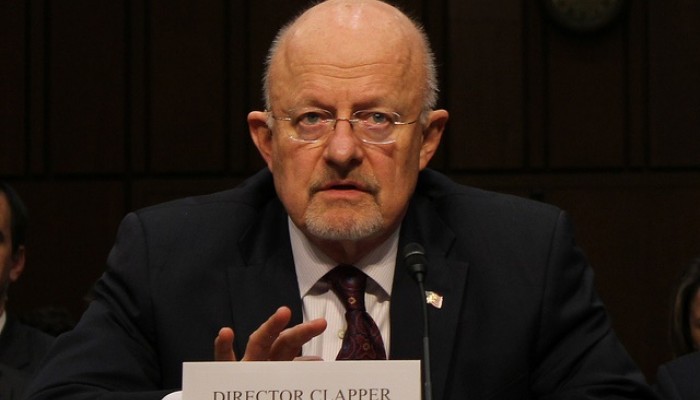Crossposted on Defense One.
In the early 1970s, a series of intelligence leaks gave Americans their first glimpses into the U.S. government’s secret intelligence operations: illegal FBI and CIA surveillance and intimidation of innocent Americans based upon their political views; military leaders hiding the truth about a war gone wrong; and a White House turning national security tools against its political enemies.
It wasn’t a pretty picture, and the resulting political climate of the post-Watergate era allowed reform-minded members of Congress to initiate broad investigations of intelligence activities. In the Senate, a bipartisan select committee led by Sen. Frank Church (D-Idaho) was established in 1975 to investigate the intelligence agencies.
I sat down with two Church Committee staff members to discuss their investigation and the lessons that might be applicable to those seeking similar reforms during today’s leaks revealing secret intelligence excesses, abuses, and misfeasance.
Frederick A.O. “Fritz” Schwarz, Jr. served as the Church Committee’s chief counsel and is currently chief counsel to the Brennan Center for Justice at New York University Law School. Schwarz discussed the Church Committee’s work in uncovering government abuse.
The Church Committee protected legitimate secrets while exposing the abusive intelligence activities that had taken place under the orders of sequential presidential administrations. The committee’s caution engendered cooperation with the agencies amid an already bi-partisan consensus for reform.
In the years that followed, Congress established permanent select intelligence committees to oversee intelligence activities and passed the Foreign Intelligence Surveillance Act, which placed domestic electronic surveillance for national security purposes under judicial supervision for the first time. A legislative charter limiting the investigative powers of the FBI failed, however, after Attorney General Edward Levi issued Justice Department guidelines serving that same purpose.
While these reforms certainly didn’t prevent every future intelligence abuse and overreach, there can be no doubt that they made the intelligence agencies more deliberative and accountable. The Church Committee report warned that a new national security crisis would test its recommended reforms, and the terrorist attacks of September 11, 2001 have done just that. The 2013 leaks by National Security Agency contractor Edward Snowden revealed that the intelligence committees and the FISA Court had been complicit in expanding the intelligence agencies’ power to collect excessive amounts of information about Americans not suspected of any wrongdoing, shocking even members of Congress who voted on these authorities. New questions are now being asked not only about the conduct of the intelligence agencies, but the competence of the post-Church Committee oversight structures to identify and curb abuses.
Dr. John Elliff, the Church Committee’s domestic intelligence task force leader, argued that while oversight doesn’t prevent errant intelligence activities — it exposes them after the fact — the resulting criticism creates a lasting bureaucratic chilling effect that inhibits abuse. In short, this phenomena, called “anticipated reaction” means that an agency that gets in trouble will seek to avoid that trouble in the future.
Elliff, who went on to serve on the Senate Intelligence and Judiciary Committees as well as in intelligence positions within the FBI, CIA and Defense Department, describes the current oversight system as “inadequate.”
WATCH:
Elliff’s concerns regarding the expansion of the FISA Court’s role in approving programs of mass surveillance, rather than individualized warrants as FISA originally contemplated, mirrors criticism from former FISA Court Judge James Robertson. Judge Robertson argued that the FISA Court has turned “into something like an administrative agency which make and approves rules for others to follow,” and that this role was outside the proper scope of the judiciary.
Schwarz agrees with Elliff that the post-Church Committee intelligence oversight mechanisms have lost force over time, as complacency, politics, administrative rules imposed by the executive branch, as well as human nature, conspired to weaken congressional resolve to serve as an effective check against abuse. Schwarz highlights several reforms that could help Congressional committee oversight.
WATCH:
However, because so little is publicly known about how oversight by intelligence committees and the FISA Court work in practice, it is difficult to know whether fixing problems that lead to weaker congressional oversight would really improve the results we receive from our intelligence agencies. Asking the questions, then, becomes just as important as finding solutions. It is more important than ever to start evaluating what is needed to create meaningful and lasting intelligence oversight.
The U.S. has reinitiated military engagement in Iraq and started a new one in Syria. The president and intelligence officials have acknowledged this military intervention was necessary because the intelligence agencies were slow to recognize the growing threat the Islamic State posed to the U.S. Rigorous oversight is essential to ensuring our intelligence agencies operate at peak efficiency and effectiveness.
Last year, Schwarz and Elliff joined 13 other former Church Committee staff members in calling for a new comprehensive examination of the intelligence agencies. This examination must certainly include an evaluation of how we can existing strengthen oversight structures or whether new mechanisms need to be created.
Watch Schwarz’s and Elliff’s full interviews here and here. Read Schwarz’s and Elliff’s full transcripts here and here.




